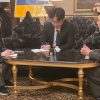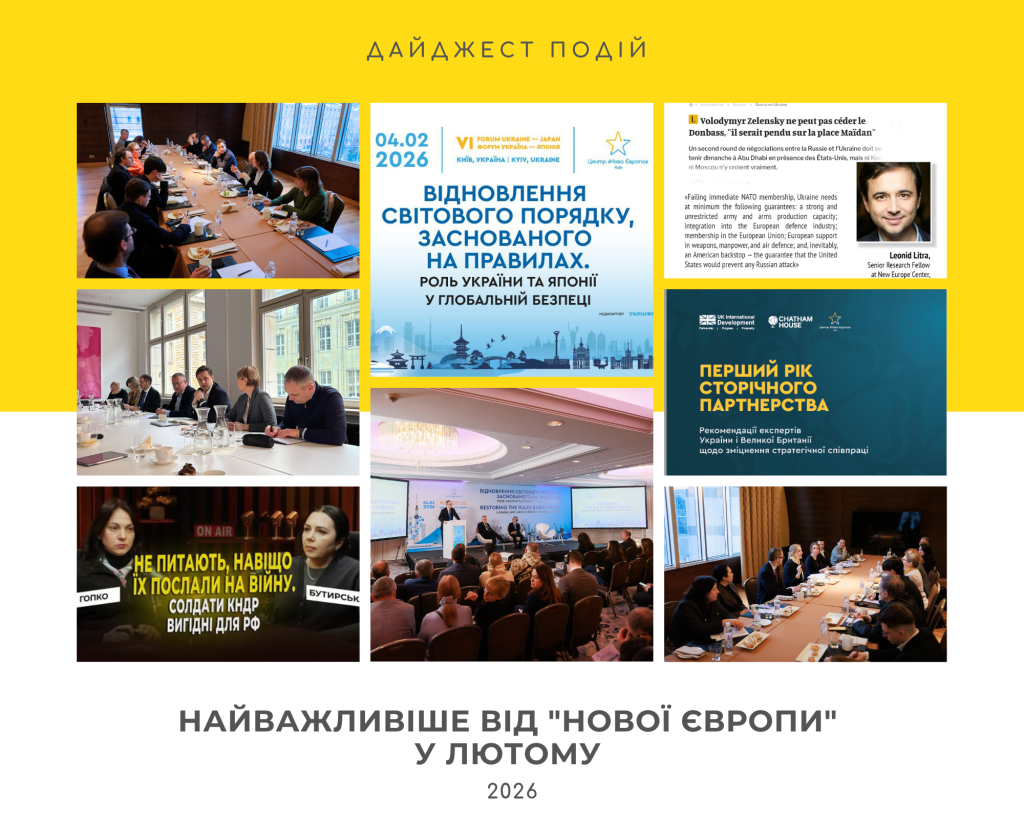Comment by Alyona Getmanchuk for “Foreign Policy“.
The position of U.S. special envoy to Ukraine, formerly held by Kurt Volker, the first senior official to step down in the impeachment inquiry against President Donald Trump, will likely be discontinued altogether, according to current and former U.S. officials who spoke to Foreign Policy.
The responsibilities of Volker’s role are expected to be taken up by other State Department officials whose portfolios include Ukraine.
The demise of the special envoy post, which was part-time and unpaid, is one of the first tangible signs that fallout from the impeachment probe has left a lasting impact on U.S. policy toward Ukraine, now at the center of the brewing political battle over Trump’s presidency. The move leaves Kyiv without a clearly designated U.S. diplomat to watch its back in talks as new Ukrainian President Volodymyr Zelensky pushes for peace five years into a simmering war in the eastern regions of Donetsk and Luhansk that has killed more than 13,000 people.
“The signal, to put it mildly, is not encouraging, but quite expected: the U.S. presence in peace negotiations on Donbas is approaching … zero,” said Alyona Getmanchuk, the director of the Kyiv-based New Europe Center, in an email to Foreign Policy.
Current and former officials say the position will likely be scrapped in large part because the administration would be hard-pressed to find someone to fill the role given how fraught working on Ukraine policy has become: Those involved have been hauled before Congress to testify in the impeachment probe, allegedly faced bullying tactics from State Department lawyers, or had their careers damaged or destroyed in the process.
One current U.S. official, speaking on condition of anonymity, conceded that the department would have “difficulty finding someone … to touch [the job] with a 10-foot pole.”
Volker, who was considered hawkish toward Russia, resigned on Sept. 27 and later told impeachment investigators that he feared he could no longer be effective in his role given his association with the inquiry. His resignation came after a whistleblower complaint revealed that Trump’s attorney Rudy Giuliani had sought to carve out a diplomatic back channel to Ukraine to push Kyiv to reopen corruption investigations that could aid the U.S. president’s reelection bid in 2020.
In a transcript released Thursday of Deputy Assistant Secretary of State George Kent’s testimony before impeachment investigators, he details how Volker reached out to Giuliani, realizing that he was critical to changing Trump’s mind on Ukraine. “What I understood was Kurt was thinking tactically and I was concerned strategically,” Kent said.
Since Volker’s departure, the position he left has remained vacant.
“Nobody in their right mind would want to step into this particular spotlight,” one former U.S. official said. “This is clearly an issue where the scrutiny of the entire world would be upon you. And you have leadership at the State Department that has shown its unwillingness to stand up for its people in even the most basic ways.”
The State Department did not respond to a request for comment for this story.
Secretary of State Mike Pompeo has repeatedly criticized the impeachment process as unfounded and unfair. During a visit to Germany on Thursday, he portrayed the impeachment probe as a media fixation in Washington that distracted from more important issues and touted the Trump administration’s commitment to security assistance in Ukraine. “You can see the media in Washington is fixated on a lot of things that you and I didn’t spend any time talking about today,” he said, standing alongside German Foreign Minister Heiko Maas. “Things that actually make a difference about American people’s security and keeping the American people safe—the things that my team, my State Department team, is focused on all across the world.”
Pompeo sidestepped questions on why the department didn’t do more to protect Marie Yovanovitch, the former U.S. ambassador to Ukraine who was removed from her post following a campaign by Giuliani and his associates with business ties in Ukraine.
Volker was appointed to the newly created role of special envoy to Ukraine by then-Secretary of State Rex Tillerson in July 2017. The former U.S. ambassador to NATO under President George W. Bush, Volker’s primary responsibility was to encourage the warring parties in eastern Ukraine to abide by the terms of the Minsk agreements, which sought to bring an end to the conflict.
The appointment of a seasoned diplomat who took a hard line toward Russia was seen as a sign that the Trump administration was serious about Ukraine and ignited hopes that it could reinvigorate the peace process at a time when Ukraine fatigue was setting in across Western capitals.
The elimination of Volker’s former position comes as the U.S. Embassy in Kyiv is led by an acting ambassador whom the White House has accused of being a “radical unelected bureaucrat” after he testified that the president’s handling of Ukraine policy raised alarm bells within the State and Defense departments. Trump has also suggested that the secretary of state’s decision to appoint former U.S. Ambassador to Ukraine William Taylor, a career diplomat and Vietnam War veteran, to the role was a “mistake.”
Zelensky, who was elected in April, is looking to make good on his campaign promise to bring peace to eastern Ukraine. In September, Russia and Ukraine swapped dozens of prisoners in what Zelensky described as “the first step to end the war.” In October, as Washington convulsed with news of the rapidly escalating impeachment investigation, Zelensky announced plans to hold a vote in the eastern regions of Ukraine held by Russian-backed separatists, which would give the territories special devolved status.
The move, which prompted an outcry in Ukraine and accusations of capitulation, paved the way for a possible high-level summit between the leaders of Ukraine, France, Germany, and Russia in a bid to implement measures outlined in the Minsk agreements.
“It’s lamentable that the U.S. role in Ukraine/Russia diplomacy has been totally vaporized by the scandal. That takes the U.S. off of the playing field at a crucial moment in the run-up to a possible summit of the so-called Normandy Four,” said Andrew Weiss, the vice president for studies at the Carnegie Endowment for International Peace who formerly served as the director for Russian, Ukrainian, and Eurasian affairs at the National Security Council.
A complaint filed by an anonymous whistleblower has thrust Ukraine into the heart of a rapidly escalating impeachment investigation, which looks set to overshadow the remainder of Trump’s first term in office. In closed-door hearings on Capitol Hill, a series of current and former U.S. officials have painted a remarkably similar picture: that Rudy Giuliani waged a campaign of shadow diplomacy—possibly at the direction of the president himself—to push the Ukrainian government to pursue investigations that could benefit Trump.
In his testimony, which was released in full Tuesday, Volker told lawmakers that he sought to convince Trump—who has long been skeptical about Ukraine—that it was a “new day” in the country following Zelensky’s election. While Volker didn’t initiate the idea that the Ukrainian president should issue a statement committing to pursue anti-corruption investigations, he felt that it could help convince Trump that the newly elected leader was committed to reform.
The former special envoy testified that when a draft statement was received from the Ukrainians, it was Giuliani who insisted it explicitly state that Ukraine would investigate debunked allegations of Ukrainian interference in the 2016 U.S. presidential election and the gas company Burisma, where former Vice President Joe Biden’s son Hunter Biden had been on the board. At the time, Volker said he didn’t make the connection in his mind that the push to open a probe into Burisma was effectively a call to investigate the Bidens.
During his tenure, Volker was well-respected in Kyiv, where he was regarded as a vital ally. “Until recently Kurt Volker was indeed viewed very positively in Kyiv. He was so well-respected in Ukraine that it was really hard to find anybody who could criticize [him],” said Getmanchuk of the New Europe Center.
“Officially he was playing a role of the US special representative in Ukraine, unofficially he was doing a valuable job of presenting Ukraine in the US,” she said in an email.
Under President Barack Obama, the duties of the special envoy were carried out by then-Assistant Secretary of State for European and Eurasian Affairs Victoria Nuland.







